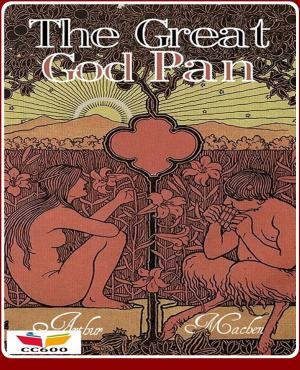| Author: | Joseph Sheridan Le Fanu | ISBN: | 1230002562032 |
| Publisher: | CLASSIC COLLECTION 600 | Publication: | September 21, 2018 |
| Imprint: | Language: | English |
| Author: | Joseph Sheridan Le Fanu |
| ISBN: | 1230002562032 |
| Publisher: | CLASSIC COLLECTION 600 |
| Publication: | September 21, 2018 |
| Imprint: | |
| Language: | English |
*** Original and Unabridged Content. Made available by CLASSIC COLLECTION 600.***
Synopsis:
Joseph Thomas Sheridan Le Fanu (28 August 1814 - 7 February 1873) was an Irish writer of Gothic tales and mystery novels. He was the leading ghost-story writer of the nineteenth century and was central to the development of the genre in the Victorian era. Three of his best known works are Uncle Silas, "Carmilla" and The House by the Churchyard. Sheridan Le Fanu was born at 45 Lower Dominick Street, Dublin, into a literary family of Huguenot origins. His parents were Thomas Philip Le Fanu and Emma Lucretia Dobbin. Both his grandmother Alicia Sheridan LeFanu and his great-uncle Richard Brinsley Sheridan were playwrights (his niece Rhoda Broughton would become a successful novelist). Within a year of his birth his family moved to the Royal Hibernian Military School in the Phoenix Park, where his father, a Church of Ireland clergyman, was appointed to the chaplaincy of the establishment. The Phoenix Park and the adjacent village and parish church of Chapelizod would appear in Le Fanu's later stories. In 1826 the family moved to Abington, County Limerick, where Le Fanu's father Thomas took up his second rectorship in southern Ireland. Although he had a tutor, Le Fanu also used his father's library to educate himself. His father was a stern Protestant churchman and raised his family in an almost Calvinist tradition. In 1832 the disorders of the Tithe War (1831-1836) affected the region. There were about six thousand Catholics in the parish of Abington, and only a few dozen members of the Church of Ireland. (In bad weather the Dean cancelled Sunday services because so few parishioners would attend.) However, the government compelled all farmers, including Catholics, to pay tithes for the upkeep of the Protestant church. The following year the family moved back temporarily to Dublin, to Williamstown Avenue in a southern suburb, where Thomas was to work on a Government commission. Although Thomas Le Fanu tried to live as though he were well-off, the family was in constant financial difficulty. Thomas took the rectorships in the south of Ireland for the money, as they provided a decent living through tithes. However, from 1830, as the result of agitation against the tithes, this income began to fall and it ceased entirely two years later. In 1838 the government instituted a scheme of paying rectors a fixed sum, but in the interim the Dean had little besides rent on some small properties he had inherited. In 1833 Thomas had to borrow 100 from his cousin Captain Dobbins (who himself ended up in the debtors' prison a few years later) to visit his dying sister in Bath, who was also deeply in debt over her medical bills. At his death Thomas had almost nothing to leave to his sons and the family had to sell his library to pay off some of his debts. His widow went to stay with the younger son William.
You can find the complete list of CLASSIC COLLECTION 600 at the end of this ebook.
FIND AND ENJOY!
*** Original and Unabridged Content. Made available by CLASSIC COLLECTION 600.***
Synopsis:
Joseph Thomas Sheridan Le Fanu (28 August 1814 - 7 February 1873) was an Irish writer of Gothic tales and mystery novels. He was the leading ghost-story writer of the nineteenth century and was central to the development of the genre in the Victorian era. Three of his best known works are Uncle Silas, "Carmilla" and The House by the Churchyard. Sheridan Le Fanu was born at 45 Lower Dominick Street, Dublin, into a literary family of Huguenot origins. His parents were Thomas Philip Le Fanu and Emma Lucretia Dobbin. Both his grandmother Alicia Sheridan LeFanu and his great-uncle Richard Brinsley Sheridan were playwrights (his niece Rhoda Broughton would become a successful novelist). Within a year of his birth his family moved to the Royal Hibernian Military School in the Phoenix Park, where his father, a Church of Ireland clergyman, was appointed to the chaplaincy of the establishment. The Phoenix Park and the adjacent village and parish church of Chapelizod would appear in Le Fanu's later stories. In 1826 the family moved to Abington, County Limerick, where Le Fanu's father Thomas took up his second rectorship in southern Ireland. Although he had a tutor, Le Fanu also used his father's library to educate himself. His father was a stern Protestant churchman and raised his family in an almost Calvinist tradition. In 1832 the disorders of the Tithe War (1831-1836) affected the region. There were about six thousand Catholics in the parish of Abington, and only a few dozen members of the Church of Ireland. (In bad weather the Dean cancelled Sunday services because so few parishioners would attend.) However, the government compelled all farmers, including Catholics, to pay tithes for the upkeep of the Protestant church. The following year the family moved back temporarily to Dublin, to Williamstown Avenue in a southern suburb, where Thomas was to work on a Government commission. Although Thomas Le Fanu tried to live as though he were well-off, the family was in constant financial difficulty. Thomas took the rectorships in the south of Ireland for the money, as they provided a decent living through tithes. However, from 1830, as the result of agitation against the tithes, this income began to fall and it ceased entirely two years later. In 1838 the government instituted a scheme of paying rectors a fixed sum, but in the interim the Dean had little besides rent on some small properties he had inherited. In 1833 Thomas had to borrow 100 from his cousin Captain Dobbins (who himself ended up in the debtors' prison a few years later) to visit his dying sister in Bath, who was also deeply in debt over her medical bills. At his death Thomas had almost nothing to leave to his sons and the family had to sell his library to pay off some of his debts. His widow went to stay with the younger son William.
You can find the complete list of CLASSIC COLLECTION 600 at the end of this ebook.
FIND AND ENJOY!















